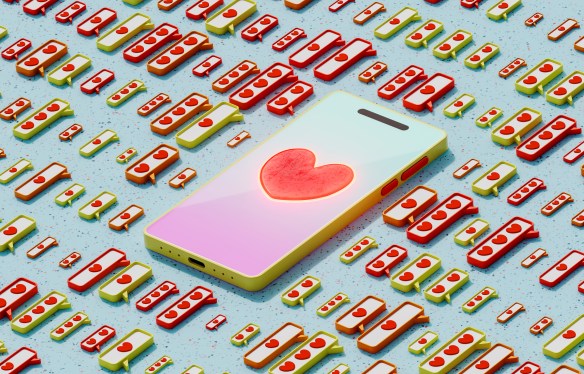Meeting your partner online is no longer taboo. The proof is everywhere—wedding invitations from friends who met on Tinder, Instagram posts celebrating anniversaries with partners from Hinge. But when Zeke Rothfels shares how she met her husband, it wasn’t through swiping left or right. Instead, she built a relationship with a man from a Facebook meme group, despite living in different countries.
At first, she questioned whether acknowledging their connection would ruin it. Six years later, she reflects on that uncertainty while putting their two-year-old child to bed.
Dating apps have lost their appeal. Disillusionment has caused stocks of major dating companies like Bumble and Match Group—parent company of Tinder, Hinge, and OkCupid—to plummet. Their market value has dropped significantly, struggling to engage Gen Z users.
Yet the internet remains central to social lives. As people tire of swiping, connections form in unexpected places—Tumblr ask boxes, Reddit DMs, even newer platforms like Bluesky. These spaces foster relationships naturally, free from dating apps’ algorithms and superficial focus.
By 2013, online dating became the most common way for heterosexual couples in the U.S. to meet. By 2019, 40% of such couples met online, doubling those introduced through friends. Today, 30% of American adults have used dating apps, rising to 52% among never-married individuals.
But online dating has downsides. Many encounter deception, harassment, or unsolicited explicit content. Frustration has grown, and users now create whisper networks to share warnings about dates. Groups like “Are We Dating the Same Guy?” and apps like Tea aim to improve safety, but breaches have exposed user data, raising concerns.
Some are abandoning dating apps entirely. Rothfels never planned to fall for someone in a meme group. She and Owen bonded over humor and politics before realizing their connection. A playful Instagram exchange about musician Woody Guthrie sparked constant communication, leading to marriage.
Others find love in unconventional spaces—Reddit forums, Twitter niches, or even running clubs. Rudy met his wife in an erotic writing forum, where anonymity allowed deep creative exchanges before romance bloomed. Similarly, James Cassar and Nicole recognized each other from Twitter before matching on Tinder, skipping awkward small talk.
The line between online and offline relationships blurs as the internet shapes how we connect. Whether through meme pages or niche forums, these digital meet-cutes offer alternatives to traditional dating—proving that love can emerge in the most unexpected places.

